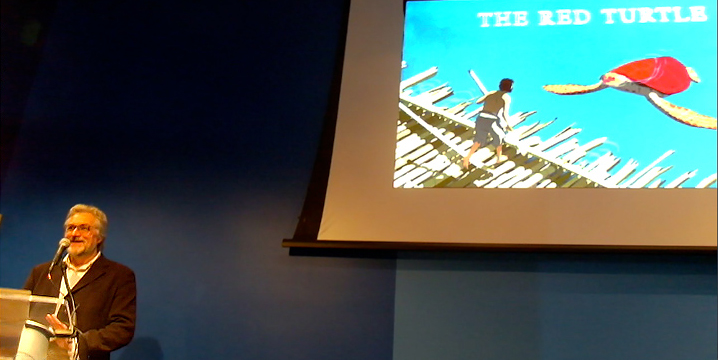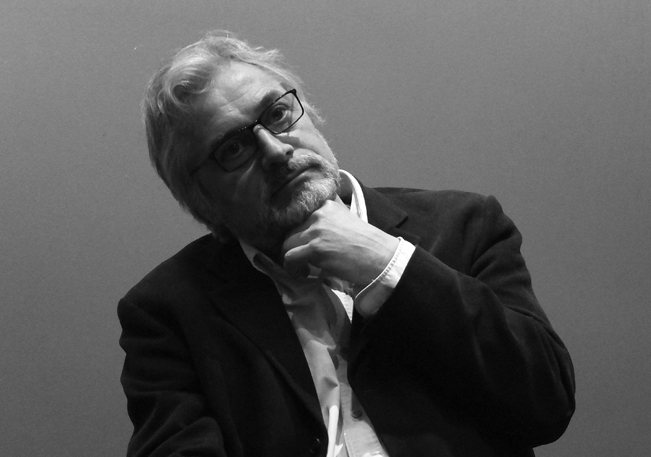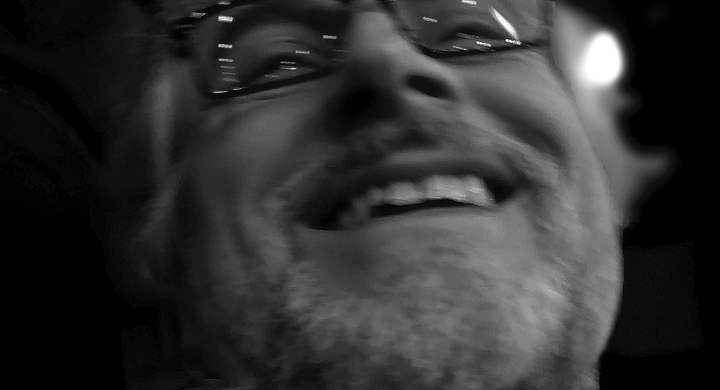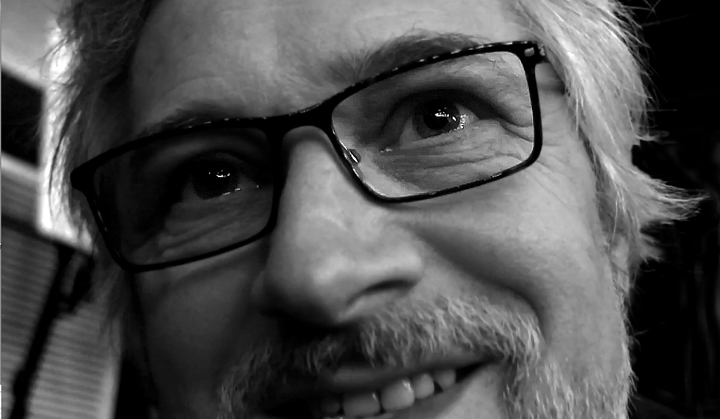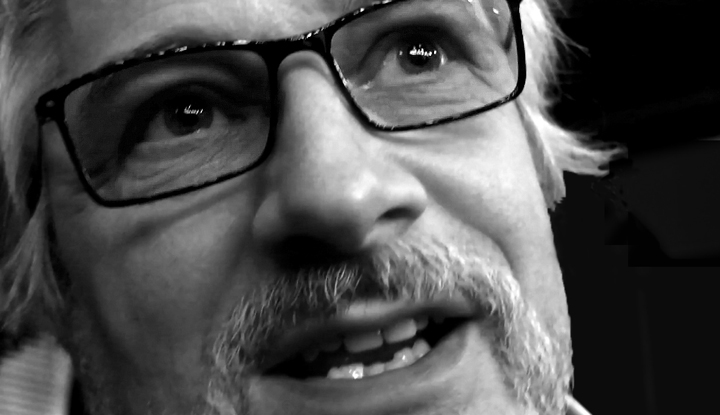h. nazan ışık—
5 February 2018 —
New York’s French Institute Alliance Française (FIAF) organized a film festival: “Animation First: A French Animation Film Festival” held 2-4 February 2018. “It is the first-ever French animation festival in the U.S.” FIAF said.
It was a festival for all ages with both feature-length and short films, virtual reality and video games and also present interactive workshops, gaming demonstrations and panel discussions.
The festival’s guest of honor was Dutch animator/film director/illustrator/ lecturer/ teacher/awards winner Michael Dudok de Wit.
The festival presented his Oscar-nominated film ‘The Red Turtle’ with a Q&A, and a talk/lecture on ‘The Making of ‘The Red Turtle’”.
Michael Dudok de Wit is a great lecturer/ a great teacher I say. During ‘The Making of ‘The Red Turtle’” he gave a deep information not only on “‘The Making of ‘The Red Turtle’, but also about step-by-step how to make an animation. It was priceless!!!
I wanted to truly speak to Michael Dudok de Wit. And I did it very impolitely, by catching him anywhere I saw him; in the elevator, on the stairs, at the reception etc…, with shower of questions. And yet, he was so kind to answer my questions patiently.
h. nazan ışık: You have made short films, and a feature film, ‘The Red Turtle’, which one did you enjoy more: Making short films or long one?
Michael Dudok de Wit: It is not comparable. I like both. To talk very generally, if I compare it to literature, short film is like a poem. You sit alone, you do your short film. And, there is one expression, one scene, one emotion, one purpose. Feature film is like a novel. You work on your idea, you do your research, you work with your collaborators, and I like both: the poet in me, and novel writer in me…metaphorically speaking.
H.N.I: Your short ‘The Monkand the Fish’ was nominated for the Academy Award for Best Animated Short Film, and ‘Father and Daughter’ won the Academy Award for Best Animated Short Film , and ‘The Red Turtle’ was nominated for Best Animated Feature Film. They are all silent.
How many languages do you speak?
M. Dudok de Wit: I’ve grown up in Netherlands, so Dutch is my language. And I speak French and English as well. Some Spanish, some German. At school I learned Greek and Latin, but I forgot those.
H.N.I: Since you speak that many languages, and you are very articulate. Yet your films are silent, without spoken words, and you leave the interpretation to the audience. Would you talk about it?
M. Dudok de Wit: Yes, I can quickly say several things about that. I make short films, many short films are silent, not because anyone tells you to make silent films, but many short films work beautifully without spoken language. There are other languages; film language, music, body language, acting, even I would say sound effects, and cinematography are also languages. That’s one thing.
This film is special; ‘The Red Turtle’ is about, large part, is about one person alone in nature. So it starts without dialog. And if you introduce dialog after that if feels strange. We tried, because I thought there was a need for clarification. But it didn’t feel right.
H.N.I: And, ‘Father and Daughter’?
M. Dudok de Wit: If I had put dialog in ‘Father and Daughter’ it would have been a disaster. Yes, because you don’t want to know too much, you want to know just what you see.
H.N.I: You always say, “My movies are so simple!” In one of the previous interviews you gave, for your short ‘The Monk and The Fish’, you said, “The story is very, very simple. It is about one character chases another, and at the end they get together (with a poetic ending).” And for ‘Father and Daughter’ you said, “It is basically about separation, and longing, and it ends in union.”
Yes, they do reunite. Is it in a dream or, or after life?
M. Dudok de Wit: Yes, and no. It depends on the individual spectator. For one spectator it is obviously a dream, and they talk to me and say, “I liked the story about the dream.” For another spectator it is obviously not a dream. That I am really pleased when the film can adapts to different audience. It is not easy, you have to be careful, it makes some people angry, because they want everything to be explained. But in my case I hope people would understand that the film is open to interpretation.
H.N.I: In ‘The Red Turtle’, you showed the man’s life, more or less, from his early 20’s to 70’s. And in ‘Father and Daughter’, it is even longer, from her childhood to old age. It sounds like an exiting challenge to tell it in a short film.
M. Dudok de Wit: Yes, yes, it is longer. And the challenge there, I found it very moving to see the whole life of a person, in general not just in films, and the challenge there was to tell the beauty of someone who goes from childhood to old age, and feeling it. The film had to be relatively peaceful, and serene.
H.N.I: You mentioned that ‘The Red Turtle’ took nine years to make, and your short film ‘Father and Daughter’ won the Oscar for Best Animated Short Film in 2001, I don’t know how long it took you to make, if you rewrite them now, what would you change.
M. Dudok de Wit: Oh my God! . Yes, I started writing ‘The Red Turtle’ in Jan 2007. (He paused briefly) Very little I think, because, the essence would have to be like that all the time! I remember I told myself if I could, I would change this and that, I would make very small changes, but so small. Not the story, but some visual changes about vegetation. But not the story that I am happy with.
H.N.I: Yesterday, at your “Making of The Red Turtle” talk you said about the film “It is about who are really we, when we are all alone in nature?” But, he wasn’t all alone for a long time; you created a woman, a son, a family for him. You could have even created a village there.
M. Dudok de Wit: We thought about it, but it would have been a different film.
H.N.I: Growth, death, the life cycle. Why is it very important for you?
M. Dudok de Wit: Ah, it is so beautiful to see the life cycle, so beautiful. It inspires me.
H.N.I: Are you a spiritual person?
M. Dudok de Wit: Yes.
H.N.I: Are you romantic?
M. Dudok de Wit: Yes, both spiritual and romantic.
H.N.I: I was listening to one of the interviews you gave, and you said about ‘The Red Turtle’: “ I want to tell this, ‘men meeting women, no dramas, no flirting even, just very simply coming together.’ ” How did you meet your wife?
M. Dudok de Wit: (Laughed), You are very personal!
H.N.I: I am sorry! But, a spiritual, sensitive, romantic gentleman wants to tell this: “no drama, no flirting, simply coming together”! Well.., if you don’t wish to you don’t have to answer..
M. Dudok de Wit: (Smiled). No, No… you’ve a keen interest in the subject…you’ve done your research.
When I wrote the story, I said: “Oh, wouldn’t it be beautiful, very simply men and women come together. No big things.” I am like that anyway. I have never been good in flirting. When I was a young man I looked at my friends flirting I thought “I can’t do that.”
I met my wife…
H.N.I: Again, you really don’t have to…
M. Dudok de Wit: No, no, no, it’s OK, it’s OK! When I met my wife, I think I was…not sure what age I was, I had a girlfriend, and she had a boy friend. We just met, and immediately we became good friends.
And, one day she said: “ You know what! I split up with my boy friend, it is just finished.”
And, I said: “Oh, It’s pity!”
And, a bit later I split up with my girl friend, months passed, nothing happened. And, and then we realized we wanted to be together.
H.N.I: Let me ask you another personal question, if I may. Yesterday when we talked about son’s leaving the island in the film, you said: “The son had to leave to find his own life, to meet people, and for mother life had to go on. I know the feeling. I’ve got two children who left home, so I know the feeling.” And also at the “The French Touch” panel discussion you said that your parents were very understanding and let you go away to a school you wanted to go. So, as a person who experienced these two feelings, to leave home as a child and to be left as a parent, would you talk about it?
M. Dudok de Wit: It is two different feelings. When I left home, I felt like, ‘at last I am free. I want to do what I want.’ I loved my parents, we lived in a beautiful home, but I wanted to go into the world. I wanted to be really free, not in bizarre way, but just like I wanted to choose my friends, have my life.
And my mother cried. My father was calm, he understood. They said: “We are happy that you are going to the art college.” (He looked like he went back to those days; he was smiling with watery eyes.)
When my children, they are now 25 and 27 years old, when they left home, yes it was….iiihh, I am attached to. But I totally understood the same feeling that I had. And I said: “They wanted to be free.” Iııııhhhh, I really can’t compare the two feelings, very different.
But even when my oldest, my son, was about three-four years old, don’t remember exactly, for the first time when he went to kindergarten, I cried. I felt like ‘Now he is entering the world, he is leaving the nest, he is going to meet people whom I don’t know.’ It is part of the same cycle. I am very sensitive to that.
H.N.I: ‘The Red Turtle’ touches that subject.
M. Dudok de Wit: Yes, It talks a little about that. I talked to my children that nothing more that I wish, that if you are ready to go into the world and that they felt that they are comfortable having their own life. I told them often that I totally support them. It doesn’t matter if I am sad or not. I told them that’s exactly how I felt when I was young, I wanted to go into the world too.
H.N.I: Your relationships with your loved ones, friends, and joys, worries you feel, do they affect your writings, your stories? Or are they the products of your imagination?
M. Dudok de Wit: Yes, yes both. I need to, I need to, it needs to be experiential, I need to have lived what I create in my films in a symbolic way, in a natural way. That is for sure. And, it is very strong, and very impassioned. So, a lot of the film is very personal.
But, I also have collaborators who make suggestions. I also observe information from the others, pay attention to the reaction of people. If they say, “Oh my God, that’s great!” I keep the idea. If they say, “I am confused!” I put a new one in. So it is very organic process.
H.N.I: Who was your targeted audience, children or adults?
M. Dudok de Wit: During the production we were not sure which audience the film intended for. I imagined all ages, not specifically children. When the film was finished, yes it is all ages. Minimum 6-8 years old, depending on the country and it also works very well with audience without children.
H.N.I: So many interviews you have given, and you have answered so many questions at the Q&As. In one interview you said, you get, inevitably, very familiar questions that make you think, “Oh, here we go again!” And you said, “The best part is the Q&As. People ask, say something sometimes very heartfelt, very sensitive, felt deeply. That’s profoundly very satisfactory.”
What question do you hate to hear?
M. Dudok de Wit: I never had a question, which I hated. I never had one.
But, there is an answer, it is not what you expect, but there is an answer. Sometimes journalists ask me a question, and while I am answering they look at their documents, their notes. They are not listening; they are doing something we don’t agree. I feel like, why am I talking? So, what I hate more as questions, not from the audience, from journalists occasionally, questions where the person is not interested in any answer. Then suddenly, I lose all motivation.
H.N.I: One more question, if you don’t mind. A question that I always ask.
(He slightly nodded his head, and smiled warmly) . If you were a journalist or someone in the audience who just watched ‘The Red Turtle’, what would you ask Michael Dudok de Wit, the director of the film?
M. Dudok de Wit: Someone who directs a film like ‘The Red Turtle’: I would be very curious about his or her spirituality; deeper things that the person tries to translate it to a film.
H.N.I: Spirituality! Would you rephrase it as a question?
M. Dudok de Wit: The deepest place, where the story is coming from, how would you describe it, your deepest motive?
H.N.I: And your answer would be…
M. Dudok de Wit: As a director my answer would be couple of things: It is about nature. And, if not we all, most of us like nature. So, it is more important than that it is a film about my awe for nature, my deep, deep respect for nature. And it is not just beautiful plants, and beautiful animals. But all nature, including violent nature, grey sky, the night, the rain, growth, death, human nature, human being, and beautiful sunset, and beautiful beaches, of course.
All nature, absolute nature! With a capital N nature! It is so complete; you could even call it LIFE instead of nature. Nature is easier, more concrete to talk about. Life is very, very …too abstract. Eeeh…that is my answer.
Then another answer, parallel together with this is my search for beauty. Of course, all filmmakers want to make something on beauty.
HNI: How do you define beauty?
M. Dudok de Wit: Exactly, that too, comes from my deepest place, like…it is not fashionable beauty, or lovely this, lovely that, but deep, deep, deep feeling of thinking “Oh my God!” that kind of beauty!
‘Poem vs novel’, ‘Chasing and getting together’, ‘Separation, and longing, and ending in union’, ‘LONGING’, ‘Spirituality’, ‘Deep, deep, deep…..’, ‘Beauty’, ‘Oh my God!’… Ooohh answers create questions. But the reception, the crowded, noisy reception, was over, the next movie was about to start…And it was time to stop. Thank you Mr. Dudok de Wit!
Photographs : © h. nazan ışık /NKENdiKEN
© h. nazan ışık

